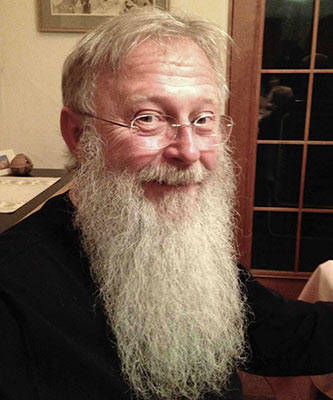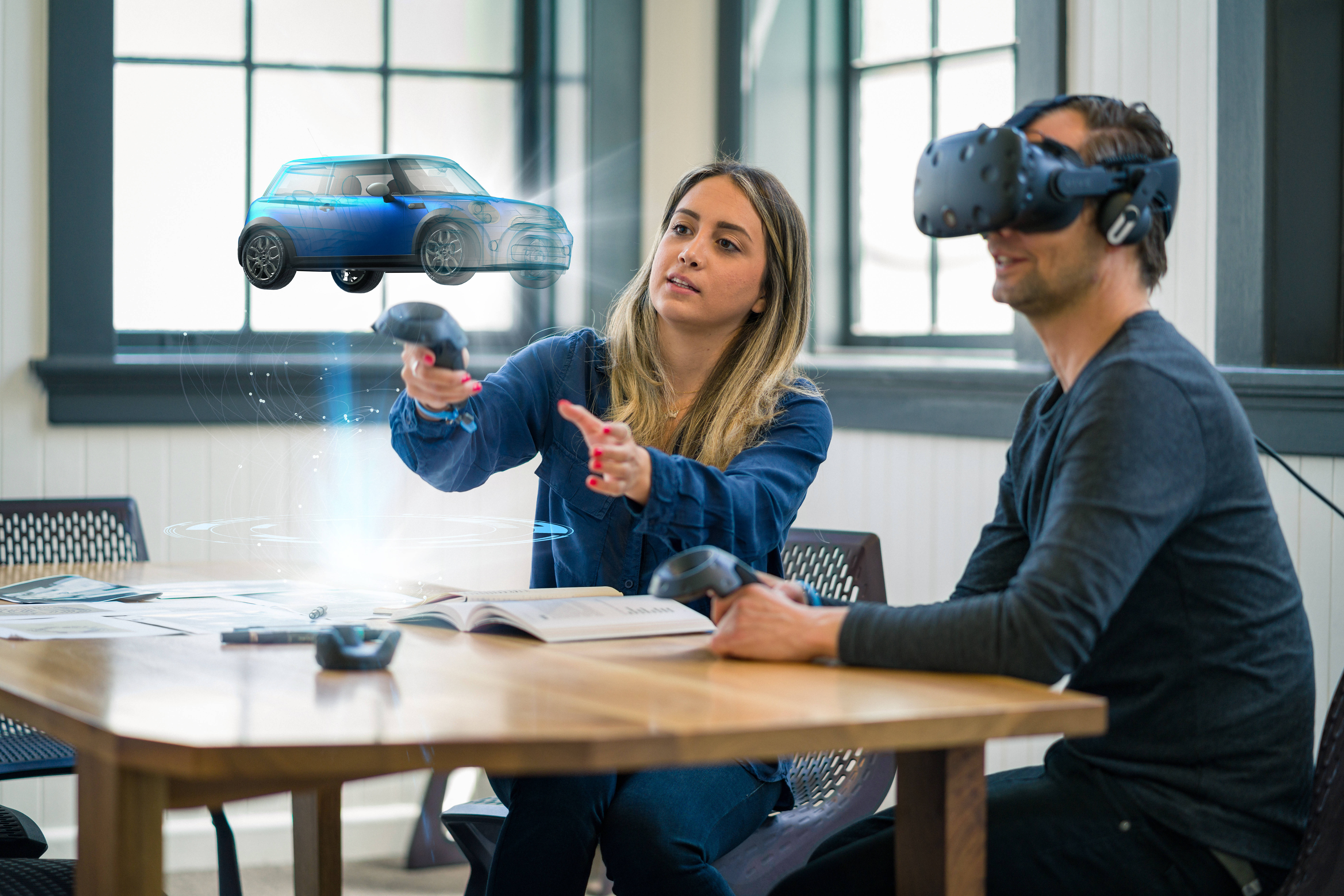Abandoning Reality: Getting Lost in Oculus Quest’s VR
Amazing. And time to remember the history. I was the chair of the first serious conference dedicated to virtual reality twenty-five years agoVirtual reality got its start in the US Air Force’s investigation of heads-up display for pilots. Just as you see a candy wrapper on your dashboard reflected in the windshield while you drive, pilots could have nearly a instantaneous view of instrumentation simply by focusing their eyes from far objects to near. Tom Furness (below right*), the “grandfather of virtual reality”, headed the project. Furness was commissioned in the Air Force and, from 1966 to 1989, he developed advanced cockpits for fighter aircraft while stationed at Wright-Patterson Air Force Base in Dayton, Ohio.

Thomas Caudell (below left) coined the term augmented reality. His work at Boeing in Seattle helped technicians to see which parts went where. Imagine putting on an augmented reality headset and looking at a broken car engine. Given a failure diagnosis, the display would show you exactly what to check for while you looked at your engine. Graphic objects and text would appear in the virtual world, overlaying the real world, showing you what to do and where to do it.

I was the Organization Chair in the first serious technical conference dedicated to VR. Tom Furness was the General Chair and Tom Caudell the Program Chair. The IEEE conference VRAIS (Virtual Reality International Symposium—the acronym means “true” in French) was held in 1993— over a quarter century ago. The compelling idea of VR was relatively new and the conference was packed with representatives from business and academia.
However, in 1993, the best computers could not keep up with computational demands of VR. Everyone acknowledged that, in order for VR to work, faster and more powerful computers were needed. I remember getting motion sickness when the VR display lagged my head movement. It felt like vertigo. My reaction to slow VR displays was not uncommon.
I am no longer involved in research dealing with VR but I recently purchased an Oculus Quest VR system. It has only four parts: the headset, two handheld controllers and a recharger. Cameras on the unit let you map out a playing area so you don’t bump into furniture while in your VR world. The experience is astonishing! Total immersion with no lag. I got so sucked in, I have more than once tried to lean against a virtual wall only to feel nothing there in the real world.
My Oculus Quest system came with some demo boxing software, Creed: Rise to Glory, based on the latest in the series from the Rocky Balboa movie franchise. My boxing opponent looked menacing and intimidating. On first viewing I actually felt fear. Then it felt weird because I knew the fear had no basis in reality.
Both my wife and my son’s girlfriend put on the Oculus headset, took a look at the 3D hulking boxing opponent, and ripped off the headset so the image wouldn’t be branded on their memory. There was no way they were going to subject themselves to this frightening world. For the record, I won my fight by a KO but got winded doing so.
The graphics in the Star Wars demo on the Oculus was so realistic, I got weak knees looking down from heights.
There is also family friendly fare. Approaching cubes are sliced using two light sabers in Beat Saber. My grandkids love it. And there is also dancing software that my wife likes.
The Oculus Quest looks to be selling well this Christmas. Due to demand, some retailers are raising their prices by over 50%. I bought mine at Best Buy and checked. It was the same price as Amazon.
The two Toms, Furness and Caudell, must be proud of the technology they pioneered.
*Note: The photo of Tom Furness is courtesy L H Carey (CC BY SA 4 .0)
Also by Robert J. Marks:
Smart Cities: Proceed with Caution! Zaheer Allam provides a balanced view of the future impact of AI on society
and
AlterEgo does not read your mind. What it really does may surprise you but many claims made for it are deceptive
